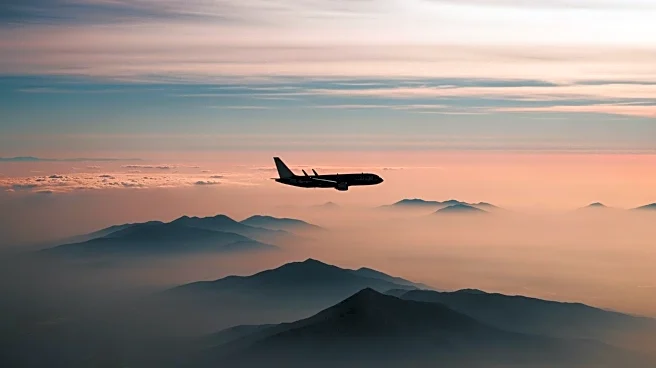What's Happening?
The U.S. Federal Aviation Administration (FAA) has issued a warning to major airlines regarding potential hazards when flying over Venezuela. This advisory comes in light of a worsening security situation
and increased military activity in the region. Although direct flights by U.S. passenger or cargo carriers to Venezuela have been suspended since 2019, some airlines continue to fly over the country for South American routes. The FAA's notice highlights the risks posed by Venezuela's advanced fighter aircraft and weapons systems, which could affect civil aviation at various altitudes. Additionally, there has been an increase in Global Navigation Satellite System interference, further complicating flight operations. Airlines such as American Airlines and Delta Air Lines have already ceased overflying Venezuela, while United Airlines has yet to comment.
Why It's Important?
The FAA's warning underscores the geopolitical tensions between the U.S. and Venezuela, which have implications for international aviation safety. The presence of advanced military equipment and increased military readiness in Venezuela poses a significant risk to civil aviation, potentially affecting flight routes and airline operations. This situation could lead to increased operational costs for airlines as they adjust flight paths to avoid the region. Moreover, the advisory reflects broader security concerns in Latin America, impacting diplomatic relations and economic activities. Airlines must navigate these challenges while ensuring passenger safety and compliance with international aviation standards.
What's Next?
Airlines are expected to continue monitoring the situation closely and may need to adjust flight routes to mitigate risks. The FAA will maintain oversight of the risk environment and could issue further advisories or restrictions based on developments. Stakeholders, including airline operators and international aviation bodies, may engage in discussions to address safety concerns and explore diplomatic solutions to ease tensions. The situation may also prompt increased collaboration between the U.S. and regional partners to enhance aviation security and stability.









